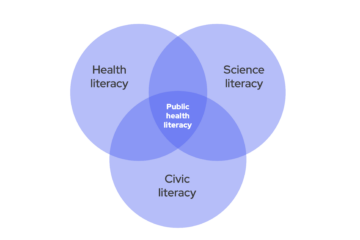The de Beaumont Foundation today announced a contribution of $100,000 to the Association of Public Health Laboratories (APHL) to support the growing need 
“The de Beaumont Foundation has been a longtime advocate for public health, and we appreciate this timely support,” said Scott J. Becker, APHL’s chief executive officer. “The burden of a public health emergency response of this scale quickly exhausts the financial resources of budgeted preparedness activities. This grant will be put to use to support the association’s operations, communications, and response needs for member laboratories. We are grateful to the Foundation for recognizing the role of our member laboratories and APHL during this challenging event.”
As COVID-19 spreads across the country, public health laboratories continue to quickly expand their capabilities to meet the historic demand for testing, ensure that necessary equipment and supplies are available, schedule staff to ensure adequate coverage, coordinate with epidemiologists and clinical labs, and report results.
“The nation’s public health system is greatly undervalued and underfunded,” said Brian Castrucci, DrPH, president and CEO of de Beaumont. “That’s definitely true for our public health laboratories, which operate behind the scenes while meeting critical testing needs across the nation – and not just when there’s an emergency like we’re experiencing now.”
APHL has undertaken enormous efforts to strengthen the public health laboratory response to this pandemic. By coordinating with federal, state, and local partners, reporting the status of testing activities, and advocating for innovative solutions, the association is helping expand capacity for COVID-19 testing among our nation’s laboratories.
Public health laboratories play an essential role in protecting communities by analyzing threats – chemical spills, foodborne diseases, or outbreaks like COVID-19 – and sharing findings with epidemiologists and other public health professionals who take action. They differ from laboratories at hospitals and clinics and from commercial laboratories, which test individual patients and provide results to health care providers to inform patient care. Both roles are critical, with one working “upstream” at the community level to foster good health for everyone in a community, and the other “downstream” at the individual patient level.
Learn more about public health laboratories.




